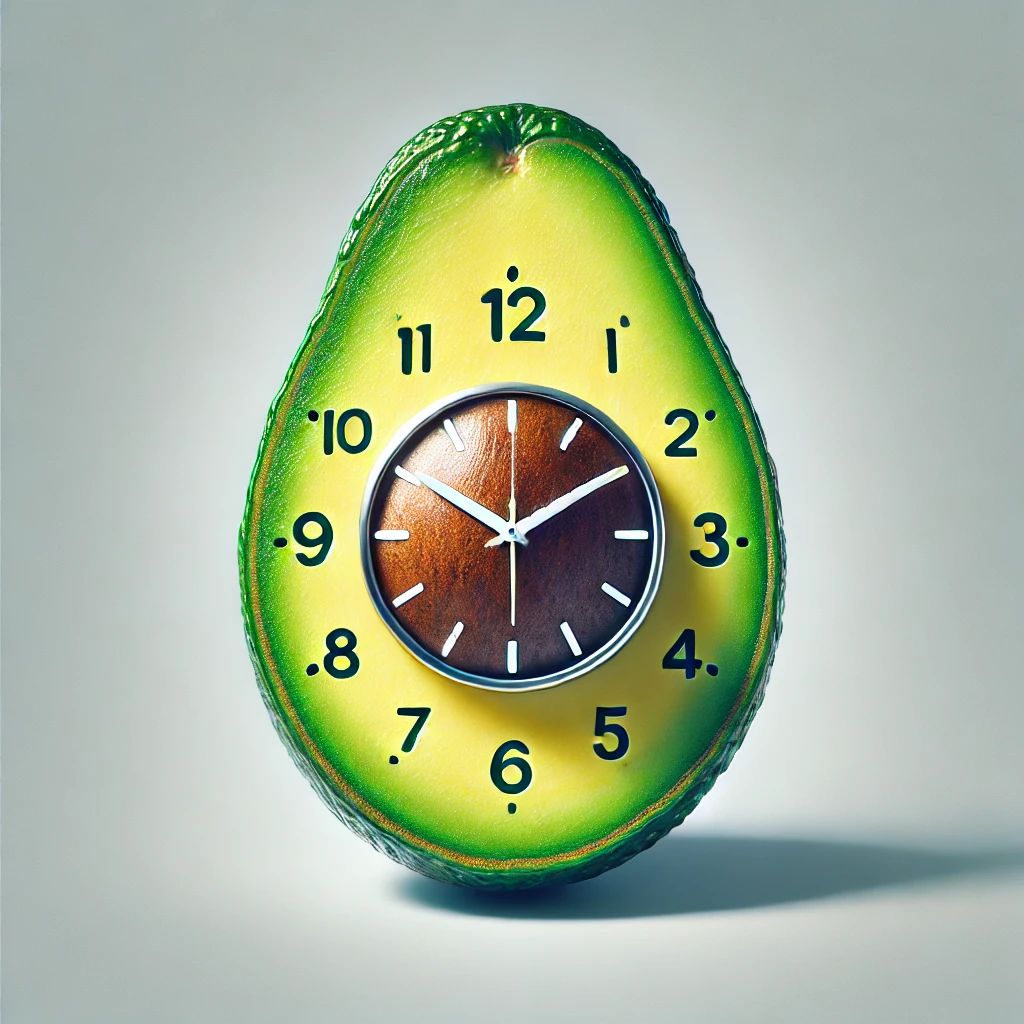
Intermittent fasting (IF) is a powerful lifestyle choice that involves alternating between periods of eating and fasting. While the fasting period is straightforward (zero calorie intake), many people are unsure what foods, if any, they can consume during their eating windows that won't hinder their progress. Avocados are often discussed as a potential ally in the intermittent fasting world, but how does this nutrient-packed fruit fit into the fasting framework? Let’s explore whether you can eat avocado during intermittent fasting and how it might support your fasting goals.
The Nutritional Benefits of Avocados
Avocados are often hailed as a "superfood," and with good reason. They are an excellent source of healthy fats, specifically monounsaturated fats, which have been linked to various health benefits, including brain function and cardiovascular health. Rich in potassium, avocados help regulate blood pressure and maintain healthy microvasculature, which is essential for heart health and cognitive function.
Furthermore, avocados are packed with fiber, making them beneficial for gut health and supporting metabolic processes like insulin sensitivity. One medium avocado contains around 12 grams of fiber, which is crucial for reducing inflammation and promoting brain health. These attributes make avocado an appealing choice for those practicing intermittent fasting, as the fruit can offer sustenance without drastically affecting blood sugar levels.
Avocados and Fasting: Does Avocado Break a Fast?
One of the most frequently asked questions is whether eating avocado breaks a fast. To answer this, it's essential to understand the nature of fasting. Intermittent fasting, particularly popular protocols like the 16:8 method (16 hours fasting, 8 hours eating), typically emphasizes abstaining from any calorie intake during the fasting window. Avocados, being calorie-dense, will break a fast if consumed during fasting hours. However, during the eating window, they are an excellent addition to your meals.
Consuming an avocado while intermittent fasting is beneficial if it occurs during your eating window. The healthy fats can help you feel satiated for longer periods, preventing overeating, and the fiber content ensures better digestion and stable blood sugar levels. For those aiming for ketogenic benefits while fasting, avocados are also ideal because they promote ketone production by providing fats without spiking insulin.
Breaking Your Fast with Avocados
Avocados are a smart choice to break intermittent fasting because they offer a well-rounded combination of nutrients that are gentle on your digestive system. After a prolonged fast, the body is primed to absorb nutrients efficiently, and the fats in avocado help to enhance the absorption of fat-soluble vitamins like vitamins E and K.
By breaking a fast with avocado, you can ensure a gradual reintroduction of calories into your system without causing a sharp spike in blood sugar. This can prevent the post-fast sluggishness that sometimes occurs with carbohydrate-heavy meals. The monounsaturated fats in avocados support brain function and mental clarity, making them a great option to avoid the mid-afternoon energy crash often seen after breaking a fast with high-sugar or high-carb foods.
Avocado and Intermittent Fasting Synergy
Avocados work synergistically with intermittent fasting by supporting metabolic flexibility—the body’s ability to switch between burning fats and carbohydrates as fuel. Intermittent fasting is known to boost metabolic processes like fat burning and insulin sensitivity. Avocados, with their low carbohydrate content and high fat content, reinforce these benefits by ensuring that the body continues to prioritize fat as a primary energy source.
For people on a ketogenic diet or looking to maintain ketosis during fasting, avocados can be a staple during eating windows. They help promote the production of ketones, which are an alternative fuel source for the brain when glucose is limited. This combination of intermittent fasting and avocado consumption may help enhance fat loss and improve cognitive function.
Can You Eat Avocado During Intermittent Fasting?
While it is essential to avoid eating during the fasting window (avocados included), incorporating avocado into your meals during the eating phase can greatly benefit your health. Avocados are packed with nutrients, healthy fats, and fiber, all of which promote satiety and metabolic health without disrupting insulin sensitivity. So, if you’ve been wondering, "Can I eat avocado while intermittent fasting?"—the answer is yes, but only during your eating window.
Is Avocado Good After Intermittent Fasting?
Absolutely! After a fasting period, your body is in a state where it can efficiently absorb and utilize nutrients. Avocados are rich in potassium, fiber, and healthy fats, which can restore your electrolyte balance, support digestion, and provide long-lasting energy without overwhelming your digestive system.
Furthermore, their healthy fats make them an ideal post-fast food for sustained energy release, unlike carb-heavy meals that can cause rapid spikes and crashes in blood sugar. Whether you’re breaking a 16-hour fast or a 24-hour fast, avocados help replenish your body with essential nutrients, aiding in recovery and promoting overall well-being.
Closing Remarks
To sum up, while you shouldn’t eat avocado during the fasting window, avocados are an excellent food to consume during your eating periods on intermittent fasting. They provide a unique combination of healthy fats, fiber, and essential nutrients that support metabolic health, aid digestion, and enhance brain function—all without spiking insulin or disrupting ketosis.
If you're searching for a healthy, nutrient-dense food to complement your intermittent fasting journey, avocado is a versatile and beneficial option. So go ahead and break your fast with an avocado. You can also enjoy it as part of your meal during the eating window. Either way, you'll be giving your body the nutrients it needs while supporting your fasting goals.
